Writing the Nomadic Experience in Contemporary Francophone Literature
After the Empire:
The Francophone World
and Postcolonial France
Series Editor: Valrie Orlando, University of Maryland
Advisory Board
Robert Bernasconi, Memphis University; Claire H. Griffiths, University of Chester, UK; Alec Hargreaves, Florida State University; Chima Korieh, Rowan University; Mildred Mortimer, University of Colorado, Boulder; Obioma Nnaemeka, Indiana University;
Kamal Salhi, University of Leeds; Tracy D. Sharpley-Whiting, Vanderbilt University; Nwachukwu Frank Ukadike, Tulane University
Recent Titles
Writing the Nomadic Experience in Contemporary Francophone Literature, by Katharine N. Harrington
The Body Besieged: The Embodiment of Historical Memory in Nina Bouraoui and Lela Sebbar, by Helen Vassallo
Writerly Identities in Beur Fiction and Beyond, by Laura Reeck
Frances Lost Empires: Fragmentation, Nostalgia, and la fracture coloniale, edited by Kate Marsh and Nicola Frith
Globalizing the Postcolony: Contesting Discourses of Gender and Development in Francophone Africa, by Claire H. Griffiths
Writing and Filming the Genocide of the Tutsis in Rwanda: Dismembering and Remembering Traumatic History, by Alexandre Dauge-Roth
The Star, the Cross, and the Crescent: Religions and Conflicts in Francophone Literature from the Arab World, by Carine Bourget
Writing the Nomadic Experience in Contemporary Francophone Literature
Katharine N. Harrington
LEXINGTON BOOKS
Lanham Boulder New York Toronto Plymouth, UK
Published by Lexington Books
A wholly owned subsidiary of The Rowman & Littlefield Publishing Group, Inc.
4501 Forbes Boulevard, Suite 200, Lanham, Maryland 20706
www.rowman.com
10 Thornbury Road, Plymouth PL6 7PP, United Kingdom
Copyright 2013 by Lexington Books
All rights reserved. No part of this book may be reproduced in any form or by any electronic or mechanical means, including information storage and retrieval systems, without written permission from the publisher, except by a reviewer who may quote passages in a review.
British Library Cataloguing in Publication Information Available
Library of Congress Cataloging-in-Publication Data
Harrington, Katharine N.
Writing the nomadic experience in contemporary Francophone literature / Katharine N. Harrington.
p. cm.
Includes bibliographical references and index.
ISBN 978-0-7391-7571-2 (cloth : alk. paper)ISBN 978-0-7391-7572-9 (electronic)
1. French literatureForeign countriesHistory and criticism. 2. Nomads in literature. I. Title.
PQ3809.H37 2012
840.9'917541dc23
2012036430
 The paper used in this publication meets the minimum requirements of American National Standard for Information Sciences Permanence of Paper for Printed Library Materials, ANSI/NISO Z39.48-1992.
The paper used in this publication meets the minimum requirements of American National Standard for Information Sciences Permanence of Paper for Printed Library Materials, ANSI/NISO Z39.48-1992.
Printed in the United States of America
Introduction
The Evolution of the Notion of Nomadism and Its Implications for Contemporary Literature
Introduction
Traditionally, writers have always been categorized according to their country of origin or alternatively by the language in which they write. As the cultural, political, and social dynamics of the world change due to mass migratory movements and individuals readily traveling from place to place, this method of classifying writers has become more and more problematic. According to the postcolonial theorist Arjun Appadurai, more people than ever before seem to imagine routinely the possibility that they or their children will live and work in places other than where they were born: this is the wellspring of the increased rates of migration at every level of social, national, and global life (6). Not surprisingly, this phenomenon is vastly changing the cultural climate of the world. To accommodate these global changes and their effect on the literary world, a number of subcategories have emerged over the years such as immigrant and second-generation immigrant writers, exiled, and diasporic writers. While these distinctions serve to more accurately represent the national and cultural realities of many writers, there still remain a significant number of individuals whose conditions of movement are not precisely represented by any one of these categories. For an increasing number of individuals around the world, it is the experience of nomadism that most accurately reflects their situation.
In our modern world, it is possible to speak about nomadism in both literal and figurative terms, whether referring to the reality of a plethora of individuals in transit around the world or a philosophical mindset and aesthetic based on the experiences of nomadic peoples. According to the philosopher Jacques Attali, among the six billion inhabitants on earth today, approximately one billion represent what he calls nomades modernes (qtd. in Lemire 3). Unlike the nomades au sens des peuples premiers, of which there remain only several tens of millions worldwide, the category of modern nomads is made up mostly of immigrants and migrant workers (3). As Appadurai asserts, these kinds of mass migrations are no longer marginal or exceptional occurrences and are inevitably altering the global cultural climate: They are part of the cultural dynamic of urban life in most countries and continents, in which migration and mass mediation coconstitute a new sense of the global as modern and the modern as global (10). In his observances of the world as a mobile landscape, Appadurai refers to these global cultural flows as ethnoscapes: By ethnoscape, I mean the landscape of persons who constitute the shifting world in which we live: tourists, immigrants, refugees, exiles, guest workers, and other moving groups and individuals (33). Impossible to ignore, this widespread deterritorialization could be considered one of the most defining forces of the modern world.
Based on the experience of actual nomadic peoples around the world, the concept of nomadism echoes the nomads resistance to a sedentary lifestyle and mindset. A nomad in the concrete anthropological sense refers to individuals, whose very livelihood requires the ability to move at will, taking their few belongings with them. Pastoral nomads, for instance, are individuals specializing in animal husbandry requiring periodic movement. In an effort to feed their livestock and therefore to earn a living, pastoral nomads must remain continually on the move. According to the ethnographer Thomas Barfield, nomadic peoples are often associated with the tents they live in: The very tents of the nomads are a sign of their ability to move at will and take their mobile livestock economy with them, throwing off old constraints and relationships. This, of course, is the reverse image of an agricultural village with its fixed plots of land, permanent houses, and seemingly fixed relationships (205). This nomadic lifestyle often passes from generation to generation and its followers therefore do not have ties to any traditional settled community. In ethnographic studies, nomads are characterized by their ease of mobility, their lack of roots and connection to a specific plot of land.
According to Barfield, nomadic pastoral peoples have always represented the classic other being both attractive and repellent at the same time (203). Historically, nomadic tribes were considered savage and were a threat to sedentary society because they were thought to respect no rules and therefore represented a powerful anti-civilization (204). Governments in general are, still today, wary of nomadic peoples since they remain difficult to control, and due to their mobile status, they remain constantly just outside the reach of the law. In fact, one could make the claim, as does Michel Maffesoli, that Le nomadisme est totalement antittique la forme de lEtat moderne (22). Throughout history there has been evidence of violence and hostility towards nomadic peoples such as gypsies who have been notoriously unwelcome in Europe and were victims of persecution under the Nazi regime.

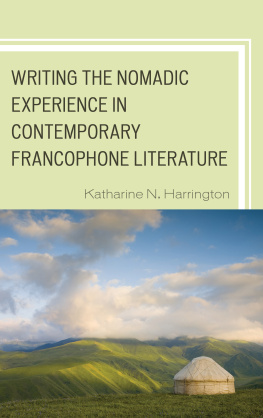

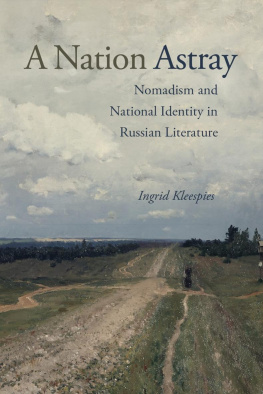
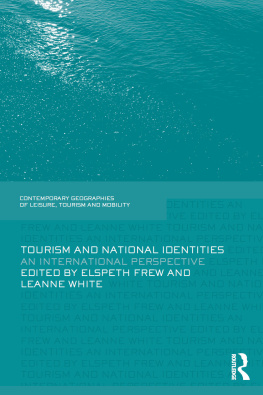
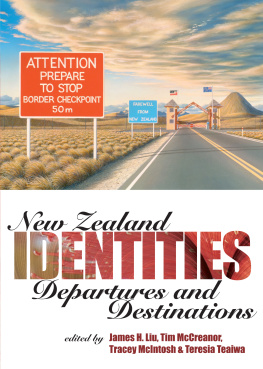

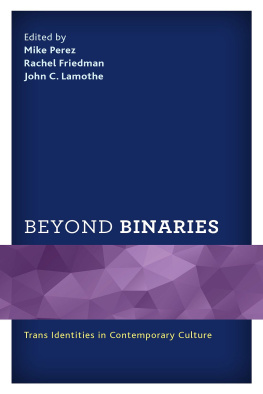

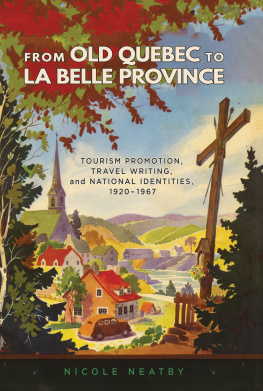
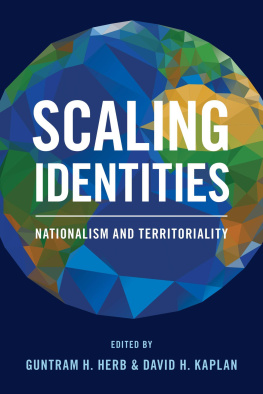
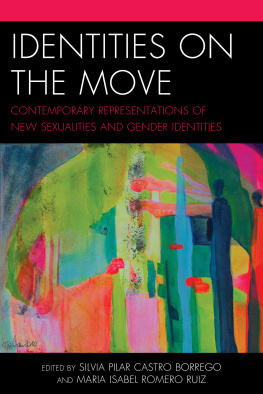
 The paper used in this publication meets the minimum requirements of American National Standard for Information Sciences Permanence of Paper for Printed Library Materials, ANSI/NISO Z39.48-1992.
The paper used in this publication meets the minimum requirements of American National Standard for Information Sciences Permanence of Paper for Printed Library Materials, ANSI/NISO Z39.48-1992.